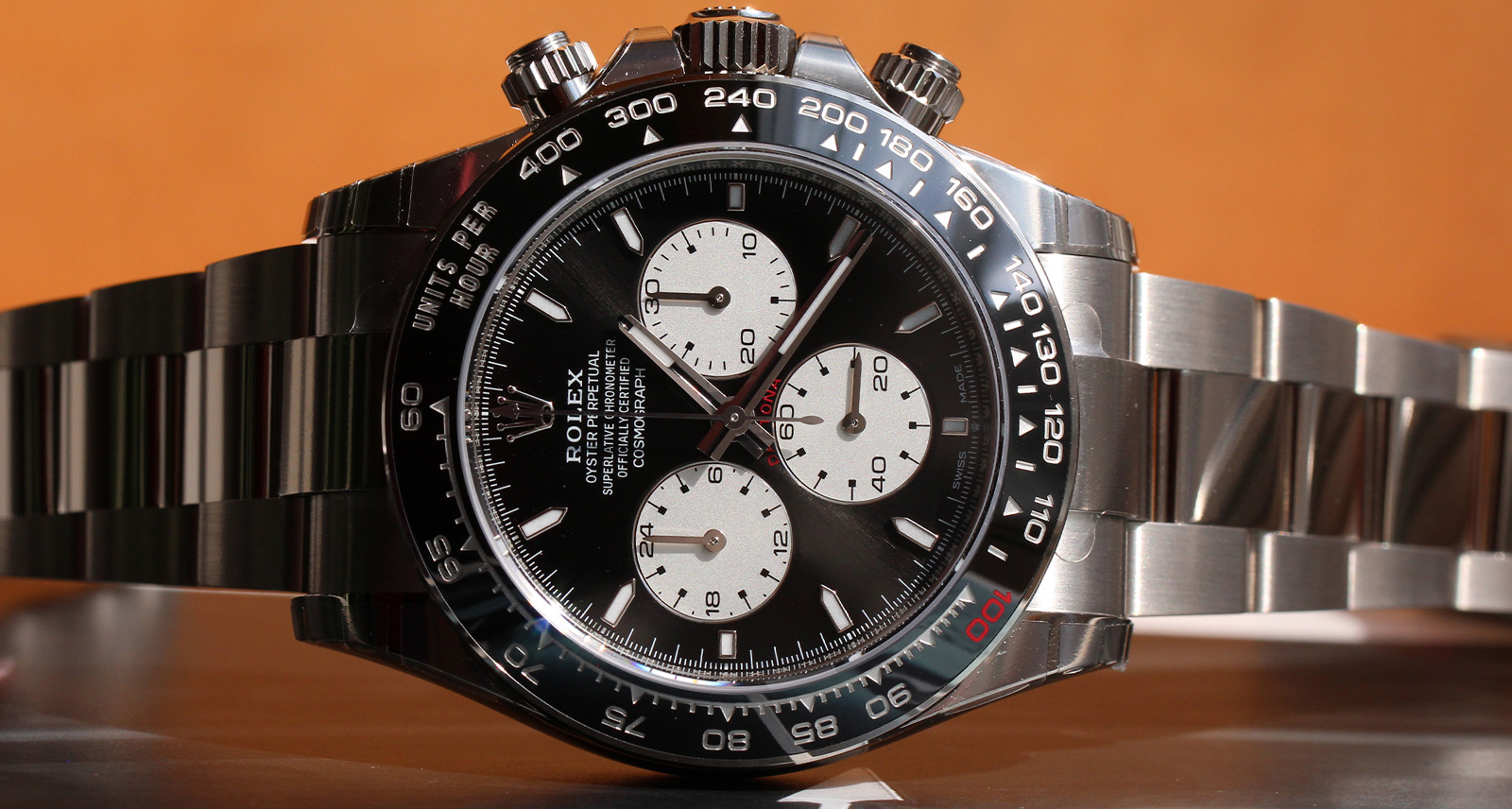When writing about the famed Rolex Daytona, it’s a mighty challenge to say something that hasn’t already been said. Safely the most iconic chronograph in the entire history of watchmaking, the Daytona continues to evolve, with new iterations appearing every year. In 2023, to celebrate the 60th anniversary of the model’s first appearance, Rolex has already revealed a slew of updates, but rather than unpacking an entire year of releases at one big trade show (such as Watches & Wonders or, formerly, Baselworld), this year the luxury Swiss watchmaker held one model back. And it’s a piece that aligns with another of 2023’s significant milestones: the 100th anniversary of the first 24 Hours of Le Mans.
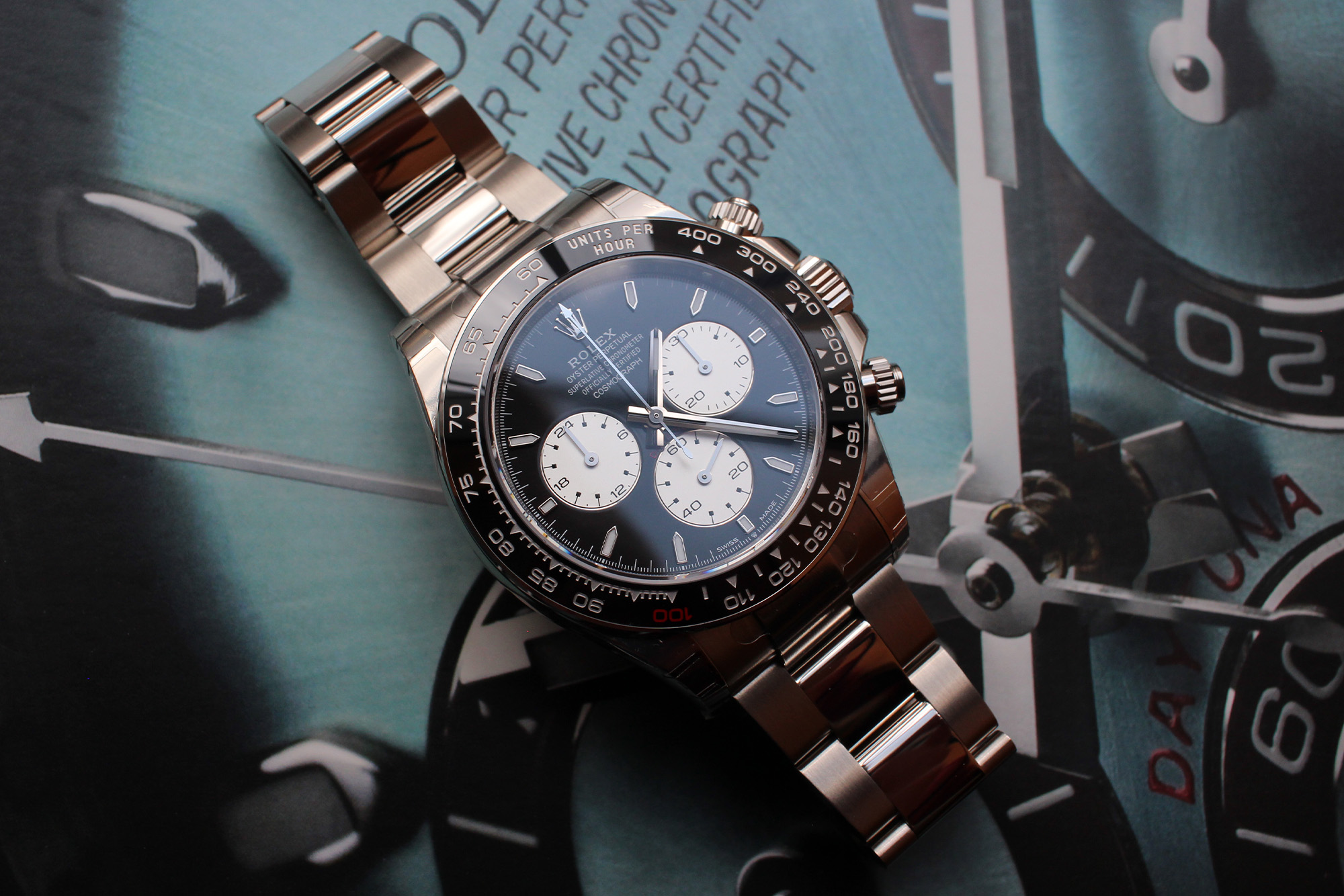
Rolex Cosmograph Daytona
1 of 5
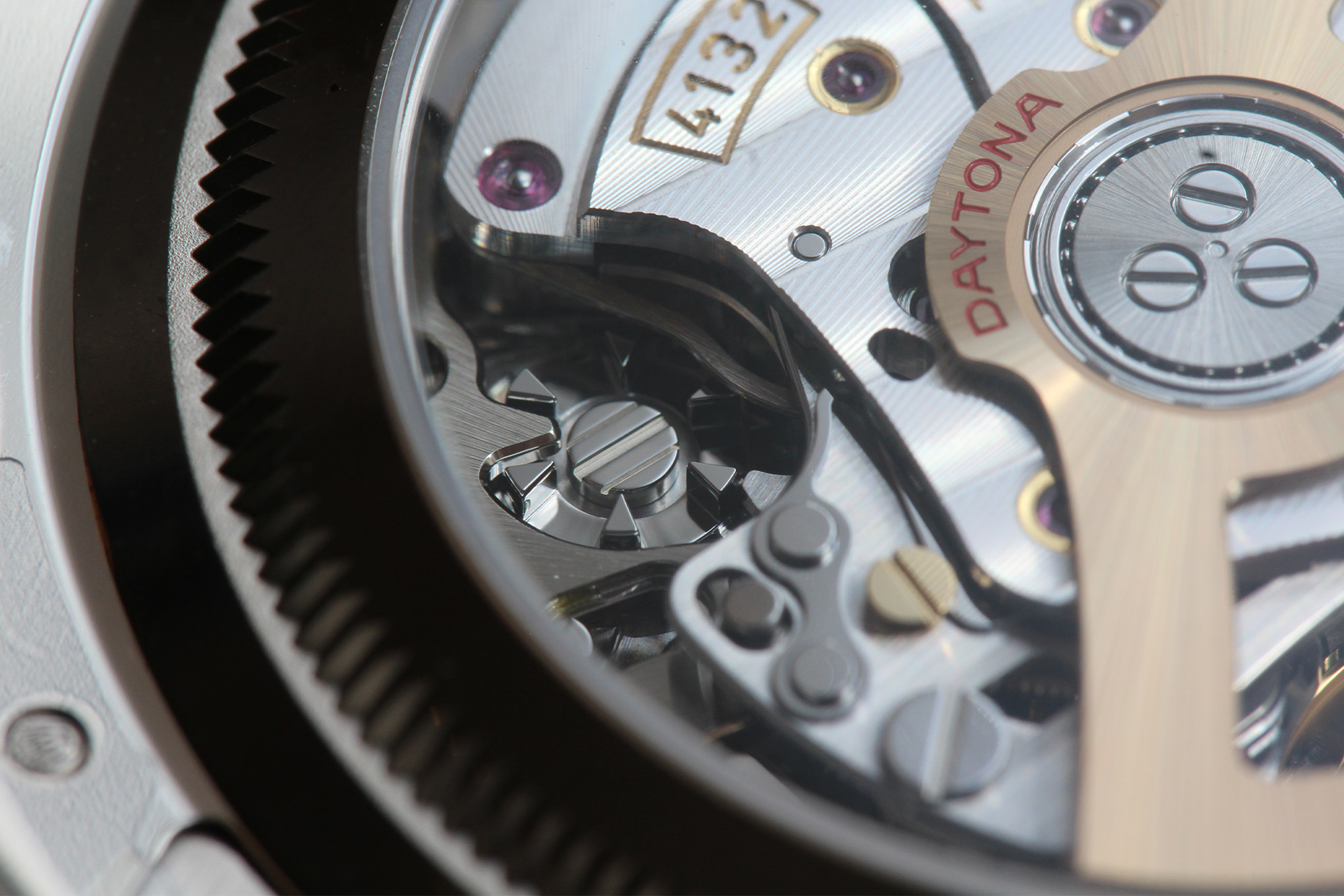
Rolex Cosmograph Daytona
2 of 5
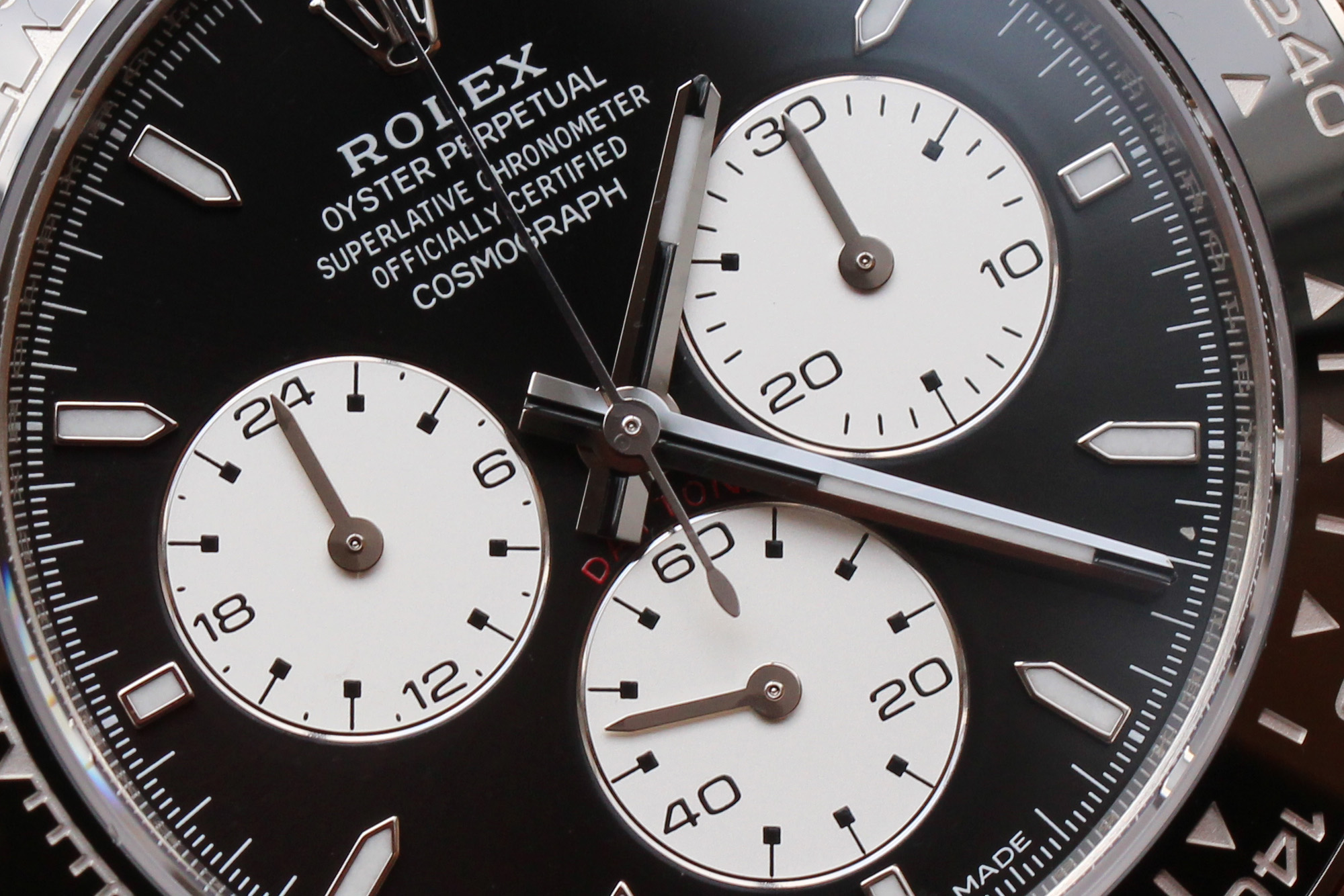
Rolex Cosmograph Daytona
3 of 5
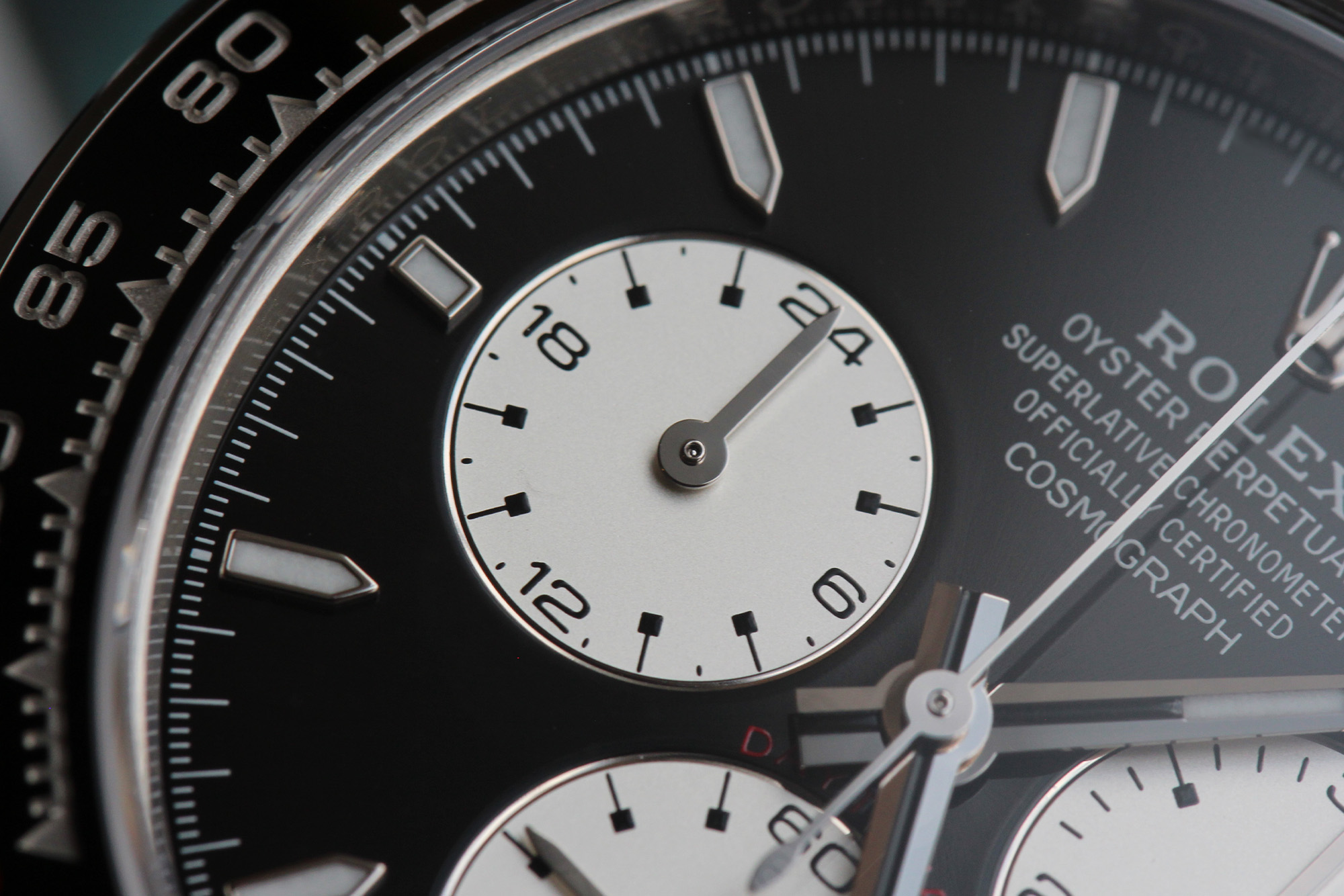
Rolex Cosmograph Daytona
4 of 5
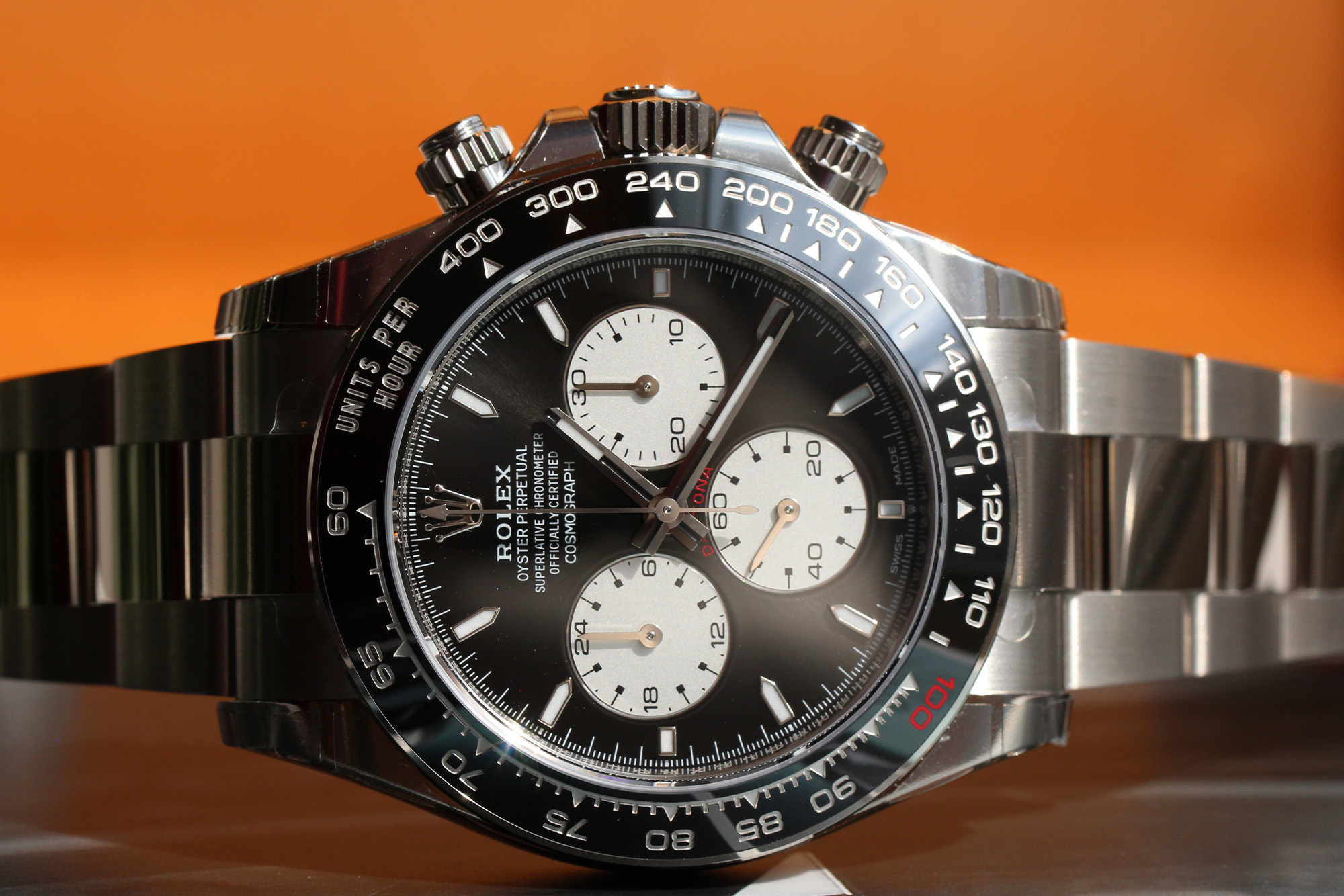
Rolex Cosmograph Daytona
5 of 5
Few brands and institutions share a connection as close-knit as Rolex and motorsport. We may, principally, recognize the watchmaker as the global partner of Formula One in this space — it is also the official timepiece of the Rolex 24 at Daytona, and the 12 Hours of Sebring — but such appointments only skim the surface of the brand’s historic, prolific presence in the racing world. Sir Malcolm Campbell wore a Rolex Oyster as he tore across the Bonneville Salt Flats in 1935, setting his final land speed record. There was even a Rolex on the wrist of flying ace Chuck Yeager when he and his Bell X-1 jet broke the sound barrier in 1947.
The Circuit de la Sarthe in Le Mans, where the prestigious endurance race is held, holds a similar significance in the annals of speed. The hallowed French course, a semi-permanent track comprising public roads and race-specific sections, is unlike any other on the modern racing scene. Its famed Mulsanne Straight was once long enough for drivers to clear 405 km/h (before a pair of chicanes was added to break up the six kilometre-plus straightaway). It also served as the eponymous raceway in Steve McQueen’s 1971 film Le Mans, as well as the recent Ford v Ferrari, starring Christian Bale and Matt Damon, which told the story of the French endurance race’s fierce battle-of-the-brands in 1966. But even these epics struggle to capture the importance and excitement of the 24 Hours of Le Mans, which is widely regarded as the greatest event in the world of motorsport.
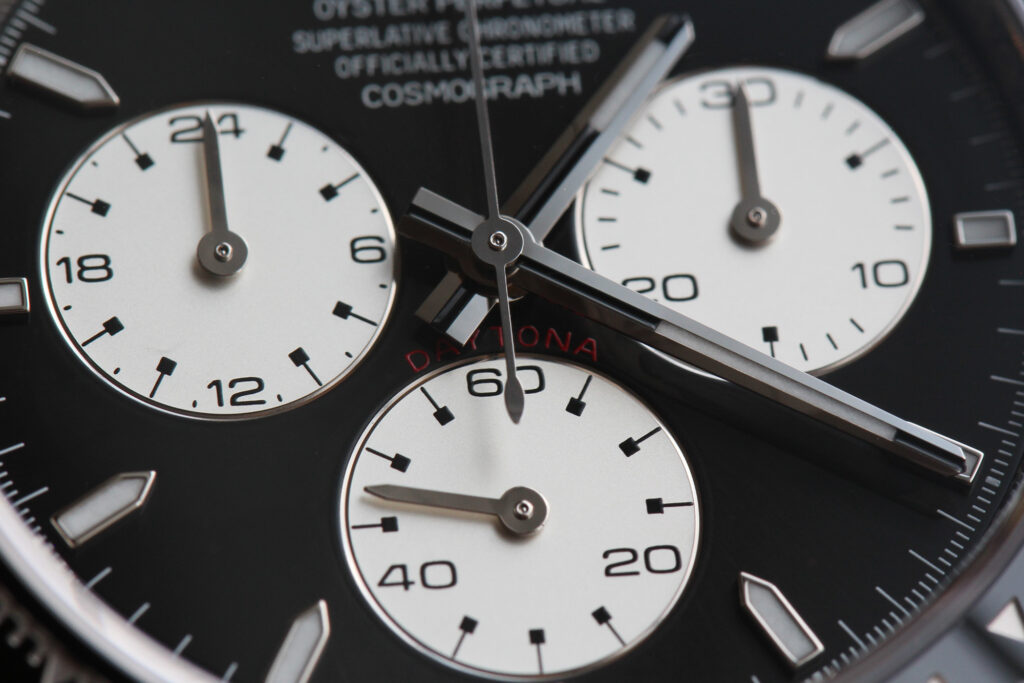
So, with collaboration and commemoration running deep in the watch industry of late — perhaps tiding us over with nostalgia while new ideas percolate behind the scenes — it’s no surprise that Rolex’s rich relationship with motorsport, and Le Mans in particular, has made for such a momentous new launch. The new ‘Le Mans’ Daytona (Ref. 126529LN) is something of an homage to the brand’s past. The dash-dot markers on the chronograph and running seconds subdials are sure to catch the eye of any serious Rolex collector, pulled as they are from the ref. 6263 Daytona — also known as the Paul Newman Daytona — first produced in 1971. The white gold model also features the so-called “Reverse Panda” dial configuration, a design tied to another curious snippet of Rolex history. Because, while ‘Daytona’ may have become one of the watchmaker’s strongest and most recognizable names, the model was initially intended to be called the ‘Le Mans.’ The decision to switch was finalized when Rolex settled on its sponsorship of the 24 Hours of Daytona race in the mid-1960s — and the rest is watchmaking history.
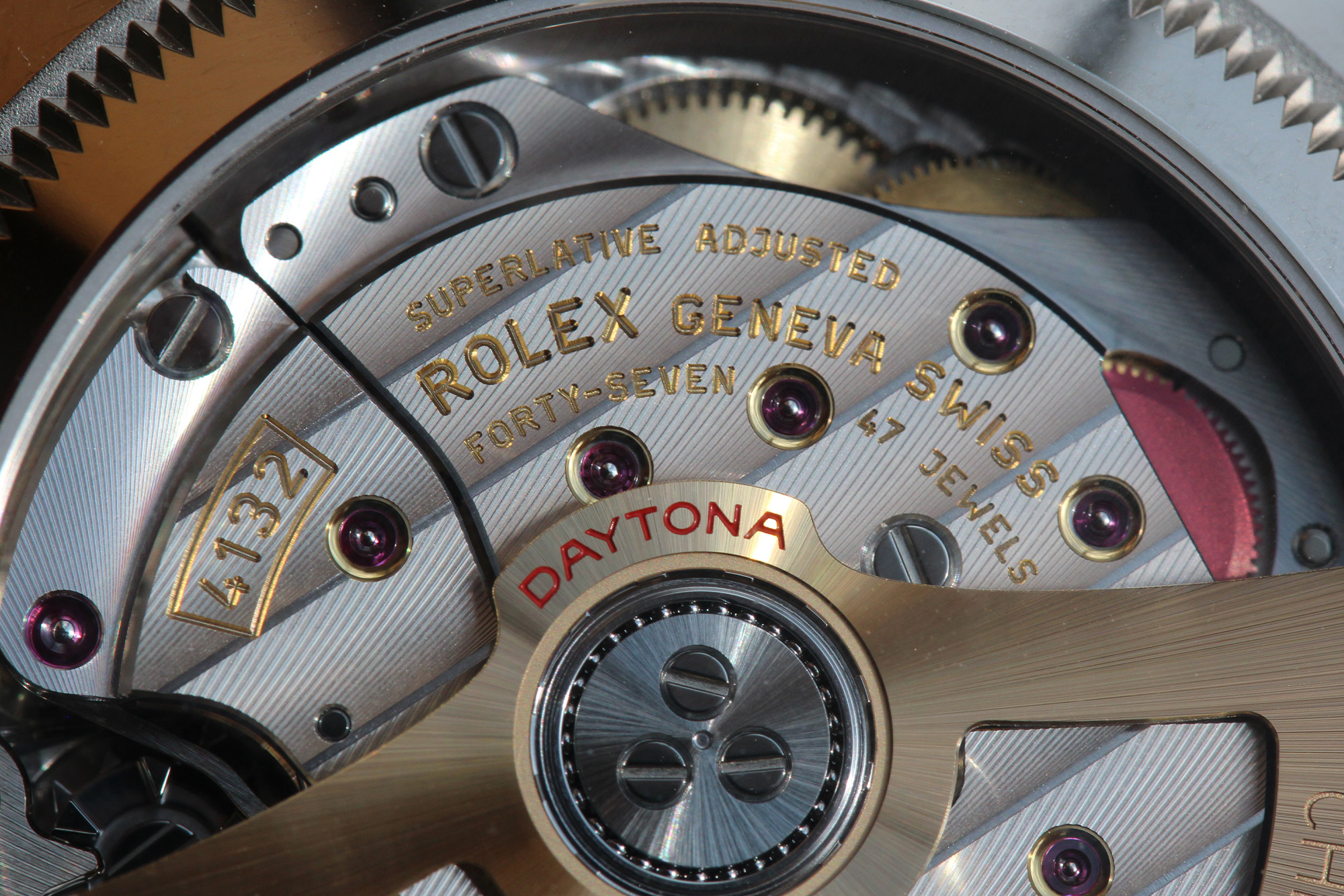
Rolex Cosmograph Daytona
1 of 4
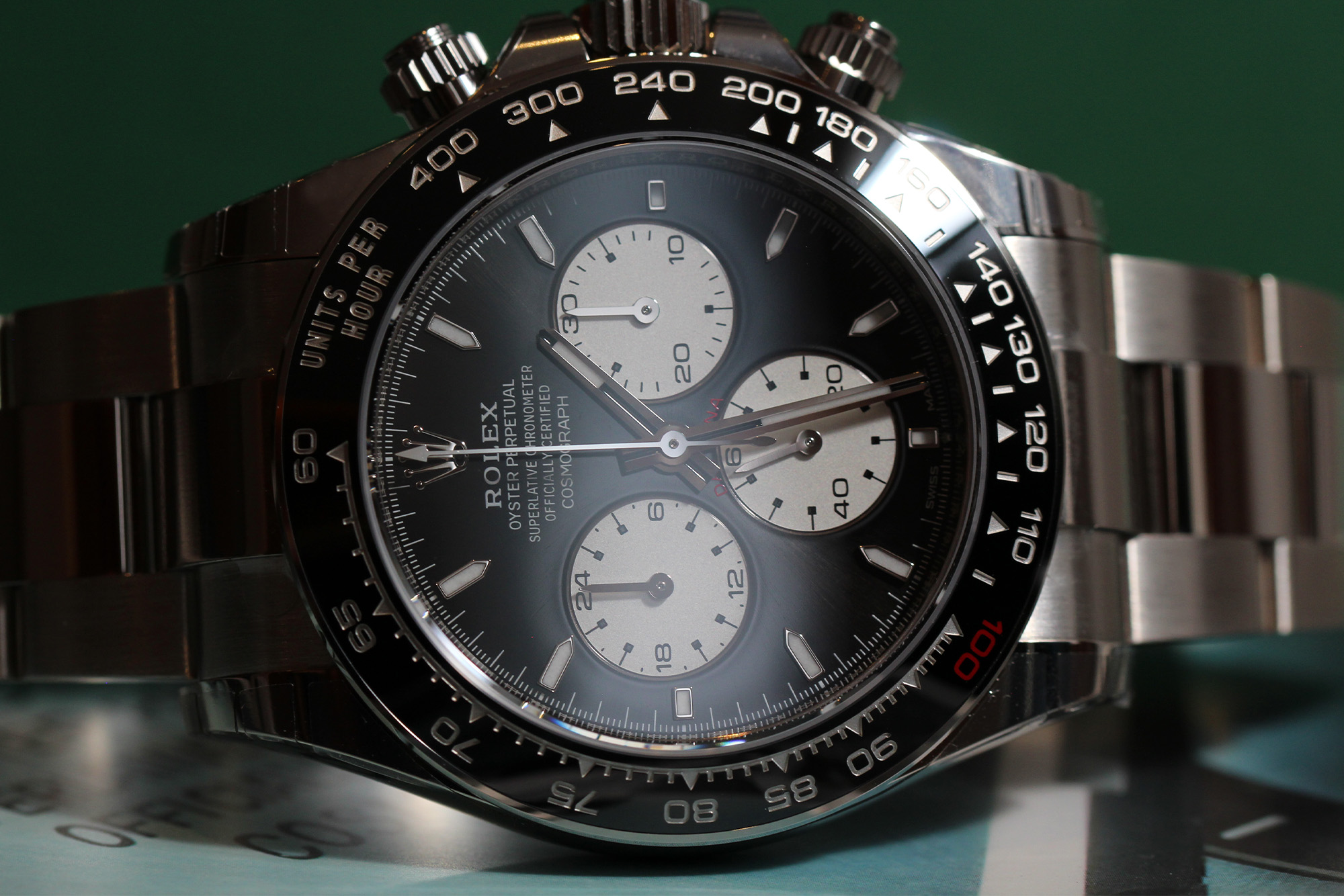
Rolex Cosmograph Daytona
2 of 4
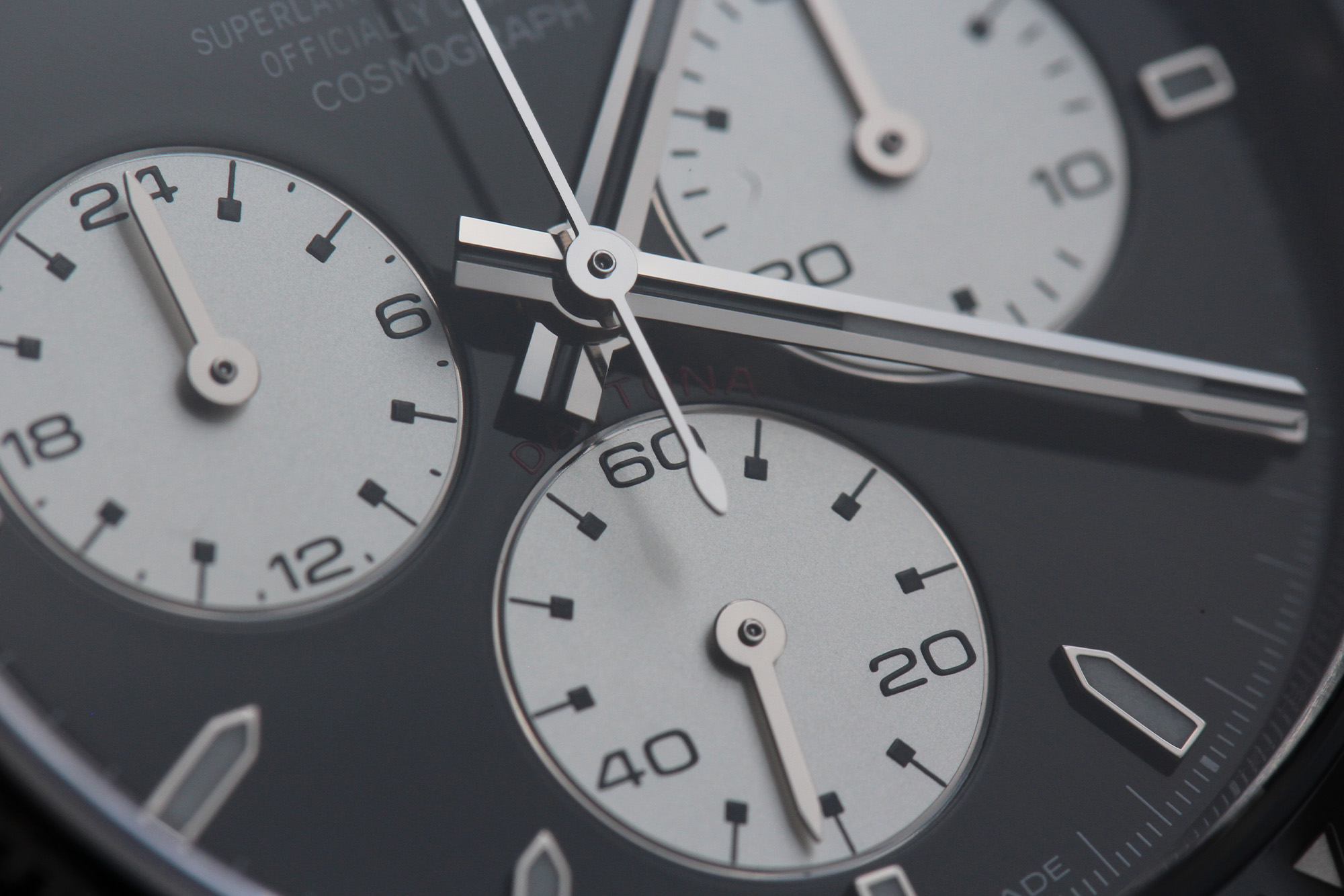
Rolex Cosmograph Daytona
3 of 4
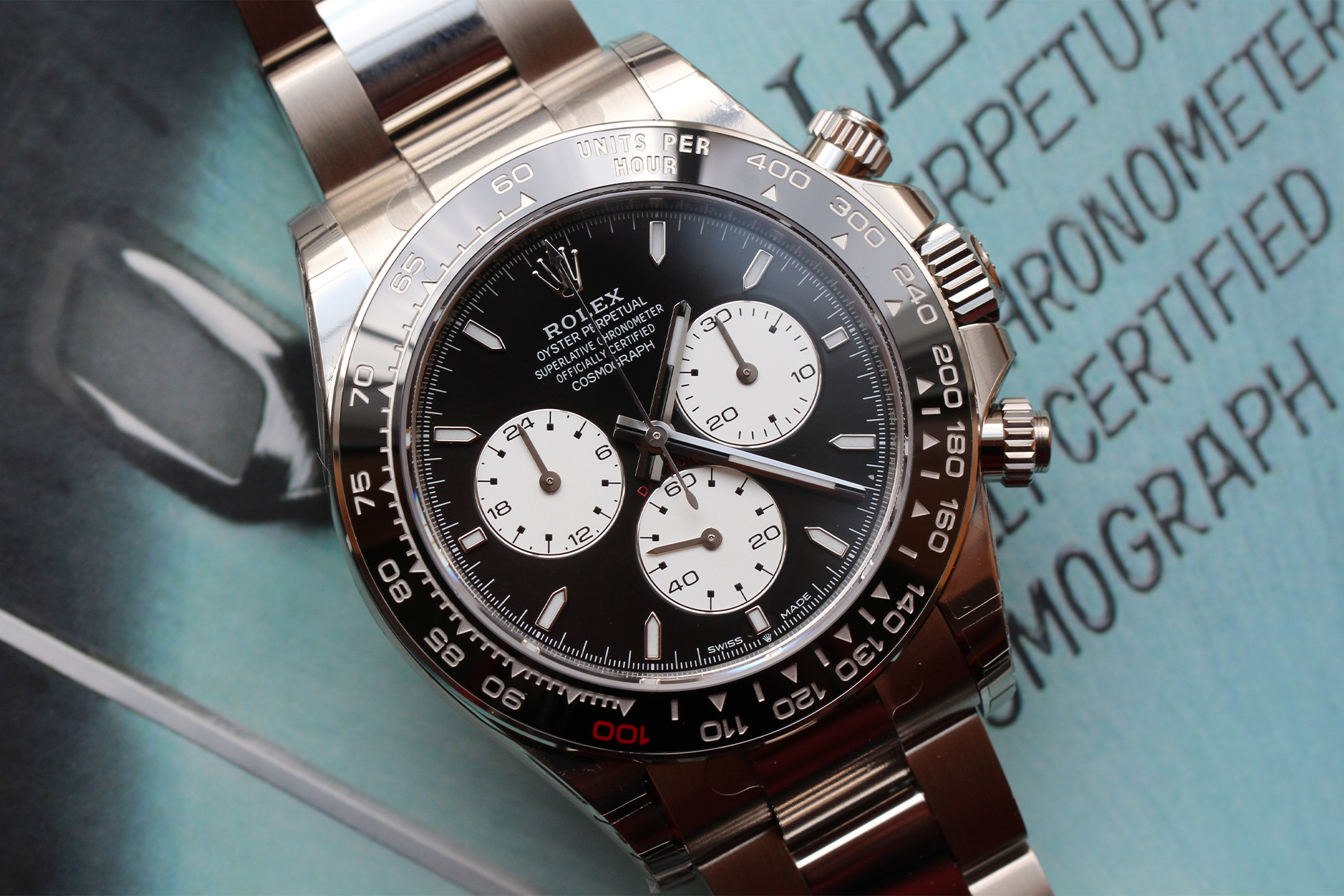
Rolex Cosmograph Daytona
4 of 4
The brand’s links to Le Mans remained strong throughout the years, though, and this latest Daytona features yet more endurance-racing easter eggs to commemorate the race’s centenary. On the obvious end of the spectrum, the Cerachrom ceramic bezel features a tachymeter scale with the number 100 finished in red ceramic; Rolex has a knack for including a touch of red text on its dials, and the name Daytona is also detailed in red here. On the less conspicuous side of things, the watch’s 12-hour chronograph counter becomes a Le Mans-ready 24-hour counter — also a Rolex first. It’s not a complex change, but it did require a tweak to the watch’s self-winding movement. And, with the brand having just finished redesigning the Daytona’s inner workings for the 2023 core collection, Rolex’s already-launched Caliber 4131 required modifications for this edition, becoming Caliber 4132.
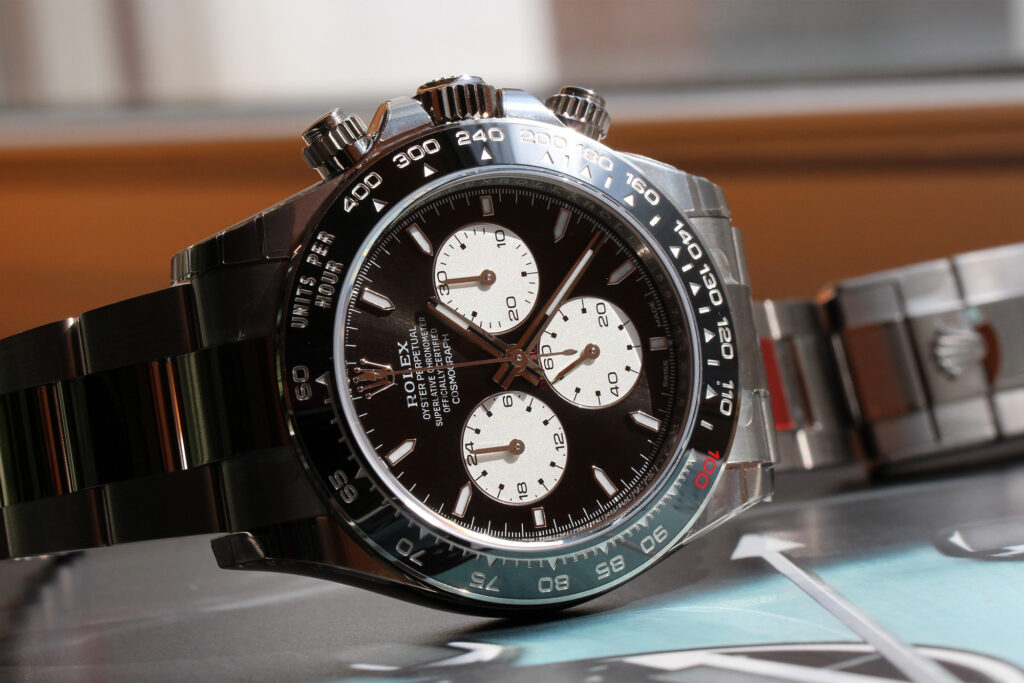
The final flourish on the ‘Le Mans’ Daytona is a sapphire crystal display caseback, marking only the second time in Rolex history that a Daytona has been fitted with this feature. Whether you’re an aficionado or not, there’s something innately satisfying about seeing the inner workings of your timepiece, and being able to do so on such a significant piece of Rolex history seems fitting. With so much attention directed its way, and with such impressive auction results being yielded from the vintage Rolex Daytona market, hitting such evocative aesthetic marks in a modern reference will certainly cement the ‘Le Mans’ as the brand’s most desirable — and difficult to acquire — piece for years to come.

Credit: Source link
